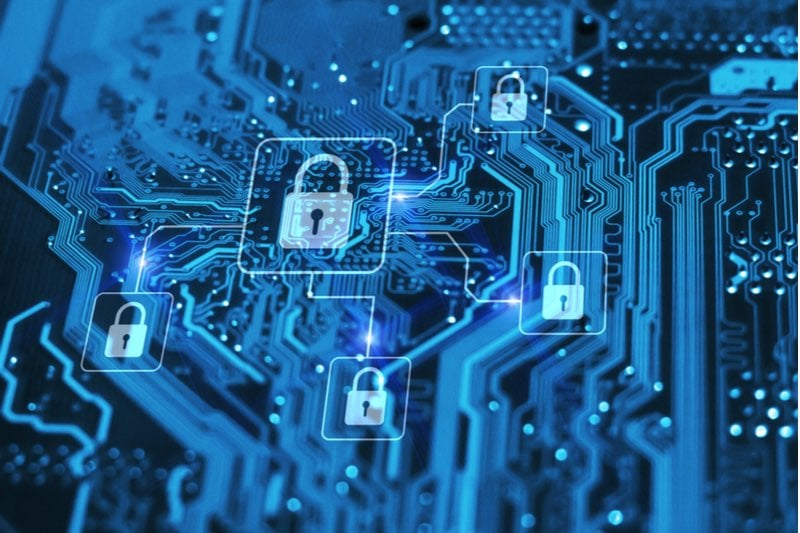Overview of Biotech and Cybersecurity
Understanding Biotech
Biotechnology, often synonymous with cutting-edge science, is a rapidly growing field that facilitates groundbreaking developments in various areas including pharmaceuticals, genetic engineering, and agricultural biotechnology. The significance of biotech innovations cannot be overstated as they play a critical role in enhancing global health, food security, and overall scientific advancement.
Understanding Cybersecurity
Cybersecurity refers to the practice of protecting systems, networks, and programs from digital attacks. These cyberattacks are usually aimed at accessing, changing, or destroying sensitive information; extorting money from users; or interrupting normal business processes. The primary goals of cybersecurity are to maintain Confidentiality, Integrity, and Availability (CIA) of information and systems. To protect data, it is essential to use encryption methods for data at rest and in transit, and to have a disaster recovery plan in place to ensure easy recovery in the event of a cyberattack or information loss.
The Intersection of Biotech and Cybersecurity
Unique Cybersecurity Challenges in Biotech
Biotech companies are particularly attractive targets for cyberattacks due to the highly sensitive nature of the data they possess, including intellectual property, patient data, and proprietary research. The lucrative market for patient medical records on the black market increases the risk of medical identity theft, financial fraud, and blackmail. Common cyber threats in the biotech sector include phishing attacks, ransomware, and intellectual property theft. The high stakes involved in protecting this data mean that a robust cybersecurity strategy is not just important but essential.
Consequences of Cybersecurity Breaches in Biotech
The repercussions of a cybersecurity breach in biotech can be devastating. Breaches can disrupt digital technology workflows in biotech companies, as seen in the case of Merck Sharp & Dohme (MSD). Data loss can lead to significant financial damage, while reputational harm can result in loss of trust and clients. Furthermore, real-world instances have shown that breaches can lead to legal penalties and long-term business setbacks.
Cybersecurity Solutions for Biotech
Tailored Cybersecurity Solutions for Biotech
Network Security
Network security is the backbone of a robust cybersecurity strategy. It involves implementing measures such as firewalls, intrusion detection systems, and network segmentation to control and monitor incoming and outgoing network traffic.
Data Encryption
Data encryption is essential for using encryption methods to protect data at rest and in transit, especially sensitive information. Encryption standards like Advanced Encryption Standard (AES) ensure that even if data is intercepted, it remains unreadable and secure.
Identity and Access Management (IAM)
IAM solutions focus on controlling user access to critical systems and data. This includes techniques like multi-factor authentication (MFA) and role-based access control (RBAC), which ensure that only authorized personnel can access sensitive information.
Incident Response Plans
An effective incident response plan details the steps to take in the event of a security breach. This includes identifying the breach, containing the damage, eradicating the threat, and recovering from its impact. Regular drills and updates to these plans can significantly mitigate damage when an incident occurs.
Regular Security Audits
Conducting regular security audits helps identify and rectify vulnerabilities before they can be exploited. These audits assess existing security measures and suggest improvements, ensuring that the organization’s defenses are always up to date.
Real-World Examples and Case Studies
Success Stories in Biotech Cybersecurity
Numerous biotech companies have successfully implemented comprehensive cybersecurity strategies with measurable success. For instance, Company X adopted a multi-layered security approach with network security, data encryption, and rigorous IAM protocols, resulting in zero breaches over the past five years and enhanced regulatory compliance.
Choosing the Right Cybersecurity Solutions for Your Biotech Company
Selecting Suitable Cybersecurity Solutions
Assessing Company Needs
Evaluating specific cybersecurity needs involves assessing factors like company size, data sensitivity, and risk profile. An initial risk assessment can help prioritize which areas need the most robust protection.
Budget Considerations
Investing in cybersecurity measures involves balancing cost versus benefit. It is crucial to allocate sufficient budget to essential protections while ensuring that the solutions chosen are cost-effective.
Scalability and Flexibility
Choosing scalable solutions ensures that your cybersecurity measures can grow with your company. Flexible solutions offer ease of integration and adaptability to evolving cyber threats.
Regulatory Compliance
Ensure that selected cybersecurity solutions comply with relevant regulations such as HIPAA, GDPR, and other industry-specific guidelines. Compliance not only secures data but also protects the organization from legal penalties.
Implementing and Maintaining Cybersecurity Solutions
Best Practices for Implementation
Effectively rolling out cybersecurity measures involves a step-by-step approach:
- Risk Assessment: Conduct a thorough risk assessment to understand vulnerabilities.
- Solution Selection: Choose appropriate cybersecurity solutions based on the assessment.
- Deployment: Implement the solutions in phases to ensure smooth integration.
- Testing: Regularly test the system for any weaknesses and rectify them promptly.
Staff Training and Awareness
Continuous employee education and training on cybersecurity best practices are vital. Employees should be aware of how to identify phishing attempts, manage passwords securely, and follow organizational policies.
Ongoing Monitoring and Updates
Continuous system monitoring for potential threats and regular updates to software protect against emerging vulnerabilities. Cybersecurity is a dynamic field, and staying updated is crucial.
Regular Testing and Drills
Routine cybersecurity drills and penetration testing ensure that the organization is prepared for actual incidents. These drills simulate real-world attack scenarios to test the effectiveness of the incident response plan.
Conclusion
Summarizing Key Points
Understanding the importance of biotech cybersecurity solutions is critical for protecting sensitive data and intellectual property. Biotech companies must prioritize cybersecurity to avoid data breaches, financial losses, and reputational damage. Implementing tailored solutions and maintaining them through regular audits, employee training, and proactive threat management can significantly enhance security.
FAQ’s
What are effective cybersecurity strategies for biotech companies?
Effective cybersecurity strategies for biotech companies involve implementing robust data protection measures, conducting regular security audits, and staying updated on the latest cyber threats. Given that biotech companies often handle sensitive data and healthcare records, it’s crucial to prioritize data protection and safeguard against security breaches. Advanced technologies and cloud computing solutions can also play a significant role in enhancing cybersecurity.
How can biotech companies protect sensitive data?
Biotech companies can protect sensitive data by implementing strong encryption methods, using secure cloud platforms, and maintaining a comprehensive cybersecurity program. Regularly monitoring for cyber threats and employing advanced cybersecurity strategies are essential for preventing unauthorized access and data breaches. Additionally, internal challenges such as employee training in data protection best practices can significantly improve overall security.
What role does cloud computing play in biotech development?
Cloud computing plays a significant role in biotech development by providing scalable and secure platforms for data storage and analysis. It enables biotech companies to leverage advanced technologies and computational tools without the need for extensive IT infrastructure. Cloud platforms offer enhanced data protection and facilitate collaboration, thus speeding up scientific discovery and biotech development. The integration of cloud computing with cybersecurity strategies ensures data security while enabling efficient research operations.
How do cyber threats impact life sciences and biotech companies?
Cyber threats pose a significant risk to life sciences and biotech companies by potentially compromising sensitive data and disrupting critical infrastructure. These industries are particularly susceptible to targeted attacks due to the valuable intellectual property and proprietary research they handle. Implementing comprehensive cybersecurity strategies and staying vigilant against emerging cyber threats are crucial for protecting sensitive data and maintaining operational integrity.
What measures can be taken to prevent security breaches in biotech companies?
To prevent security breaches, biotech companies should adopt multiple layers of cybersecurity strategies, including advanced threat detection systems, regular security audits, and robust access controls. Protecting sensitive data through encryption and secure cloud computing solutions can significantly reduce the risk of data breaches. Awareness and training programs for employees on recognizing and responding to cyber threats are also vital components of a successful cybersecurity program.
How important is data protection in healthcare and biotech sectors?
Data protection is critically important in healthcare and biotech sectors due to the sensitive nature of the data they handle. Protecting healthcare records, scientific research, and proprietary information from cyber threats is essential for maintaining trust and compliance with regulations. Implementing stringent data protection measures and staying updated on cybersecurity strategies are necessary to safeguard against data breaches and ensure the integrity of critical infrastructure.
How can biotech companies mitigate cybersecurity threats?
Biotech companies can mitigate cybersecurity threats by implementing robust security controls, conducting regular security audits, and staying updated on the latest cybersecurity strategies. Given the sensitive data they handle, such as medical records and research information, it’s crucial to protect against potential cyber attacks and data breaches. Utilizing advanced technologies and artificial intelligence can enhance threat detection and response capabilities, thereby safeguarding critical data.
What are the best practices for protecting sensitive data in the healthcare sector?
The best practices for protecting sensitive data in the healthcare sector include encryption, secure access controls, and comprehensive data protection policies. Regularly updating cybersecurity strategies to address new challenges and inherent vulnerabilities ensures that sensitive data, particularly medical records, remains secure. Implementing security measures that cover both digital and physical access to data can significantly reduce the risk of breaches.
How do cybersecurity strategies help in protecting medical records?
Cybersecurity strategies are essential for protecting medical records by establishing strong defenses against cyber attacks and data breaches. These strategies include the use of advanced technologies, regular system updates, and employee training on security measures. Ensuring data protection through encryption and secure cloud platforms also helps in maintaining the confidentiality and integrity of medical records. Proactive measures can prevent unauthorized access and mitigate internal challenges related to data security.
What are the challenges in data protection within the healthcare sector?
Data protection in the healthcare sector faces several challenges, including evolving cyber threats, inherent vulnerabilities, and the need to comply with stringent regulations regarding personally identifiable information. Additionally, internal challenges such as employee errors and inadequate security controls can compromise sensitive data. Addressing these challenges requires a multi-layered approach, including the implementation of advanced security measures and continuous monitoring for potential cyber attacks.
What role does artificial intelligence play in enhancing cybersecurity?
Artificial intelligence (AI) plays a crucial role in enhancing cybersecurity by improving threat detection and response times. AI can analyze large volumes of data to identify patterns and anomalies that may indicate a cyber threat. Implementing AI-driven solutions helps organizations stay ahead of potential cyber attacks and data breaches, ensuring the protection of sensitive data. AI enhances the overall effectiveness of cybersecurity strategies by providing smarter, more adaptive defenses.
How do data breaches impact a company’s reputation in the healthcare and biotech sectors?
Data breaches can have severe impacts on a company’s reputation in the healthcare and biotech sectors. Breaches compromise sensitive data, such as medical records and proprietary research, leading to loss of trust among clients and stakeholders. Additionally, breaches can result in legal consequences and financial losses. Ensuring robust data protection and implementing comprehensive cybersecurity strategies are essential to maintaining a company’s reputation and mitigating the risks associated with data breaches.






